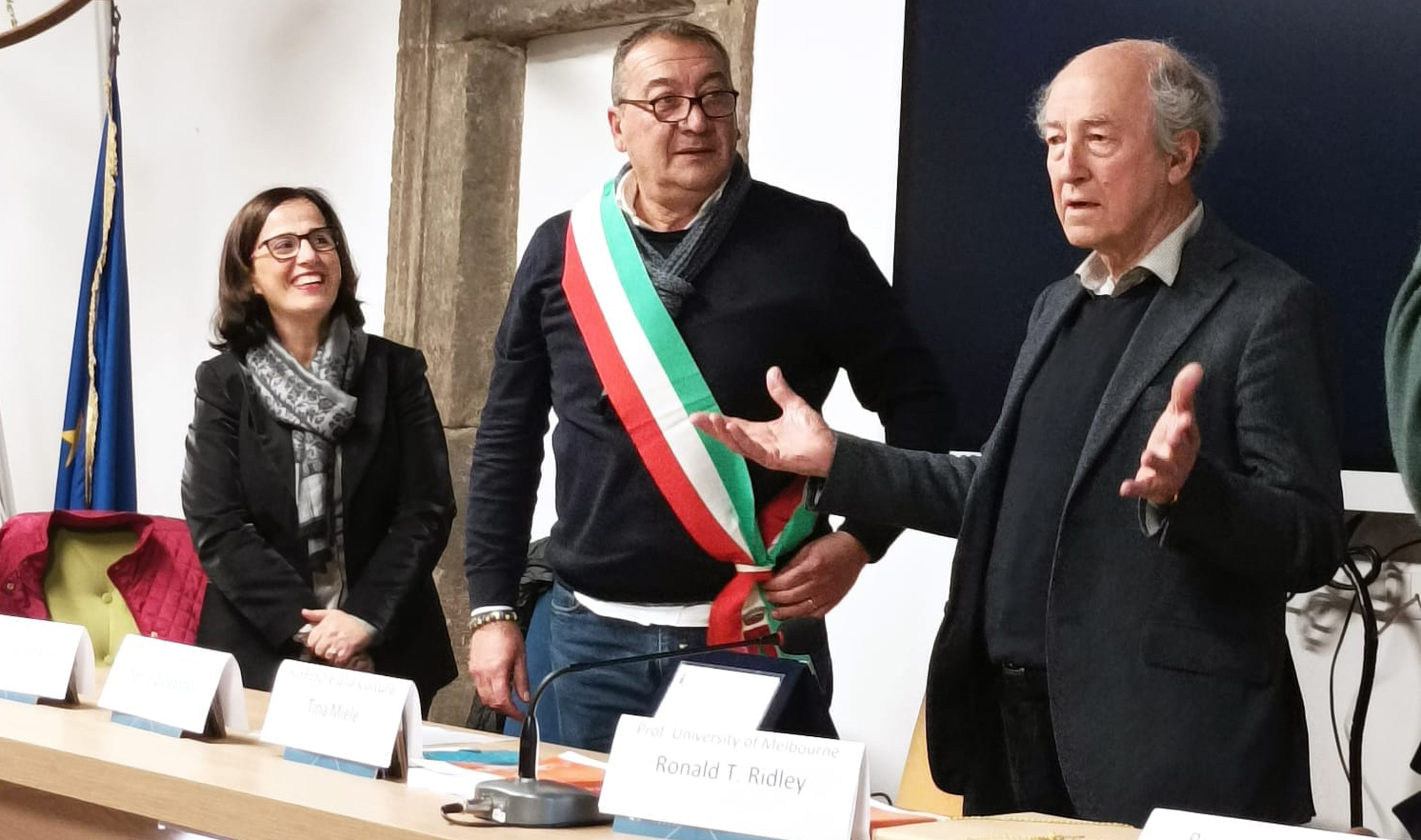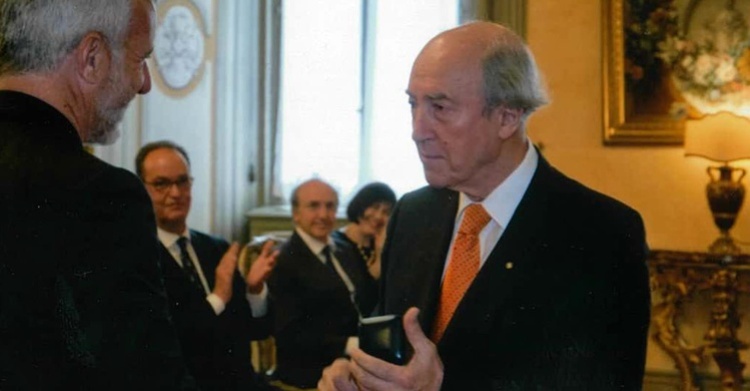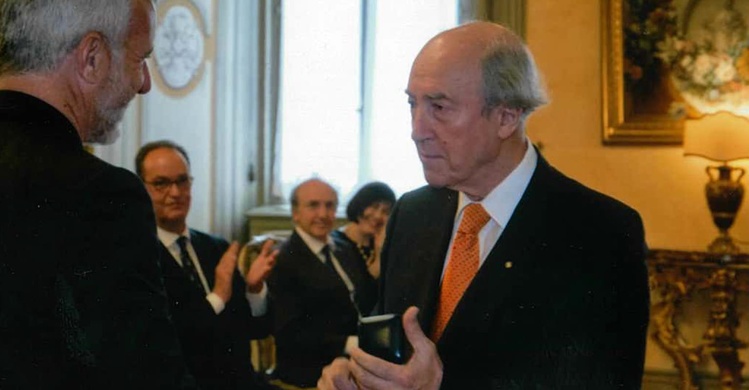The Professor emeritus in Historical Studies and Philosophy at The University of Melbourne, Ronald Ridley, is an example of frankness and serious academic enthusiasm for the ancient.
Over the years, Ridley has received dozens of honors and was the recent recipient of the prestigious ‘Daria Borghese Award’.
He has also been awarded honorary citizenship from the small town of Labico, near Rome.
In writing his monograph, ‘The Prince of Antiquarians’, about an unusual Francesco de’ Ficoroni, Ridley’s attention was guided towards Italy.
In fact, it was the first comprehensive study of the life and career of the famous Italian antiquarian, archaeologist, collector and scholar, who lived at the turn of the 17th and 18th centuries.
For Ridley, Ficoroni became a constant throughline in his academic life.
“I'm interested in ancient history and archaeology, everything to do with Rome through the centuries,” Ridley explained.
“I kept seeing this man's name. And so, I thought, ‘that’s strange, this man is so important, but no one knows anything’.
“And so, whenever I see anything like that, I straight away want to find out all about it. And so, I knew that he was born in what is now called Labico, south of Rome.
“So, the first thing you do,” he continued, “is you go to where a person was born”.
“I had to go to two churches and to the archive of the Ecclesiastical Archive at San Giovanni in Laterano. And in a moment, there he was. Proper details of his life and death.”
And so began his new obsession, slowly pouring through old texts that were barely legible.
“His handwriting was terrible!” said Ridley.
“I had to learn just to be very patient and very slow.”
In 2019, shortly after its publication, Ridley was invited to receive the gold medal of the ‘Daria Borghese Award,’ awarded annually to a non-Italian author at the majestic Palazzo Borghese in Rome.
The City of Labico, which recently made Ridley a citizen, considered the text “an act of great generosity, of inestimable value” that could lead to “the creation of a study center and archive dedicated to this great fellow citizen”.
Looking back, Ronald Ridley considers his choice to move to Melbourne back in 1965 as “fortunate”.
He had left Sydney for Victoria's capital which he considered “quieter and more culturally charged” in order to accept the chair of History at The University of Melbourne.

Ronald Ridley (right) with Labico Mayor Danilo Giovannoli (centre) and councillor Tina Miele
After having accrued seven years in the role, Ridley took a sabbatical which consisted of twelve months of study.
It was 1971 when Ridley left on a ship named ‘Marconi’ to finally visit the Eternal City, the setting of all his research.
“It was one of the last trips that these ships made because the oil crisis was making ships impossible, too expensive,” Ridley recalled.
“We came back on the Galileo, and it took express service. Express service took one month from Europe to Australia, it was wonderful.
“If those ships were still going, I would be on them. We were just delighted, we were learning Italian and we were meeting people. And the ship was so beautiful, and everything was such good quality.
“We were just economy class, they called it tourist class.”
Upon arriving in Rome, he discovered “a whole new life”.
“We understood what real, civilised, elegant life was like by observing Italians,” he said.
“The way they dressed, the way they moved. Everything about them was amazing to us.
“I always remember seeing a pair of men walking arm in arm down the street, just strolling along and they were having the time of their lives just talking. They would go to a bar and have a cup of coffee together.
“I mean, for an Australian, that was just unbelievable.”
That year in Rome, Ridley also managed to shake hands and converse with “a great teacher” who later became a close friend - European scholar and professor of Roman History at Sapienza University - Santo Mazzarino.
“I knocked and opened the door and I said to him, ‘Ho percorso il mondo per incontrarla’ (I travelled the world to meet you),” Ridley recalled fondly.
“And we just became friends instantly.”
Despite continued offers to teach in the Italian capital, Ridley decided to pursue his career in Melbourne.
“I’m not really courageous enough to become a migrant,” he said.
After nearly sixty years of serious study and research, he is preparing to publish a biography of an ancient Roman hero from the 4th century B.C., Marcus Furius Camillus, who was a general at the time of the Gallic War.
Ridley is also preparing a unique text on the papacy from the 15th century to the first laws against damage to classical buildings and monuments, the beginning of the modern idea of protecting our cultural heritage.
“Italy does stand out for many things,” Ridley concludes.
“The beauty of the countryside, the character of the people, the richness of the history, the greatness of the things that Italians have done. The greatest artists and sculptors and scientists and so on.
“Very, very wonderful contribution.”












